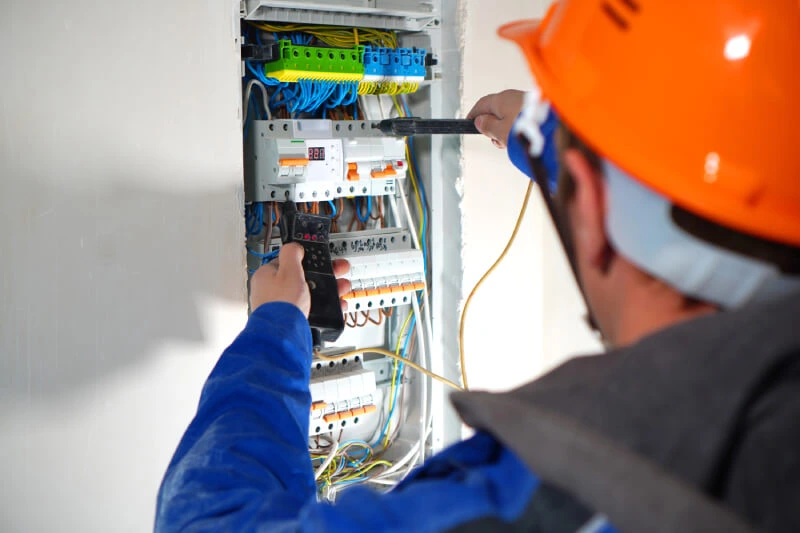Home Electrical Safety Information
Home electrical safety matters because the voltage of electricity and the available electrical current in homes have enough power to cause death by electrocution.
According to the Electrical Safety Foundation International (ESFI), an average of 51,000 electrical home structure fires occur each year, claiming almost 500 lives, injuring more than 1,400 people, and causing more than $1.3 billion in property damage. In addition, the US Consumer Product Safety Commission reports that nearly 400 people are electrocuted in the US each year.

Electrical Safety For Homeowners And Consumers
Electrical safety should be a top priority in your home. Being aware of electrical hazards can help reduce the staggering number of electrically-related home fires, injuries, and deaths every year. Read through these ESFI resources to help you gain a better understanding of how to use electricity and electrical products more safely:
- Your Home Electrical System: A basic understanding of your electrical system can help you prevent electrical hazards.
- Home Safety Devices: Find out about the latest electrical safety technologies, like AFCIs, GFCIs, and TRRs, that can help protect your family and home.
- Do-It-Yourself (DIY) Electrical Safety: Review ESFI recommendations and safety tips before you decide to tackle electrical projects in your home.
- Home Safety Checklists: Use these easy checklists to help you identify and correct electrical and fire hazards in your home before a serious incident occurs.
- Electrical Safety Videos: ESFI’s video library contains a wide variety of safety videos that demonstrate critical home electrical safety concepts and tips. Many videos are also available in Spanish.
DOs And DON’Ts To Ensure Electrical Safety
Follow these DOs and DON’Ts to ensure electrical safety in your home:
DOs
- Do cut the power for any DIY electrical project.
- Do use the proper wattage for lamps and light fixtures.
- Do plug major appliances, such as refrigerators, dryers, washers, stoves, air conditioners, microwave ovens, etc., directly into a wall outlet rather than using extension cords and strips.
- Do unplug appliances when not in use.
- Do have all electrical work done by a qualified electrician.
DON’Ts
- Don’t run cords under carpets, rugs, doors, or windows.
- Don’t use extension cords long-term. Extension cords should only be used temporarily.
- Don’t overload your outlets.
- Don’t use more than one heat-producing appliance plugged into an electrical outlet at the same time. This includes a coffee maker, toaster, space heater, etc.
- Don’t use electrical appliances and tools near water.
Home Electrical Safety Matters
NW Power and Air can help make improvements to your home to make it safer for you and your family. Contact NW Power and Air today to schedule service.
NW Power and Air has built its customer base through quality work at a fair price. Our technicians are professional, licensed electricians with years of experience. We pride ourselves on being skilled and detail-oriented, taking the extra time and steps to ensure that our work is done correctly the first time. We stand behind our work, and all products installed are under warranty.
NW Power and Air also provides excellent customer service, as it is important to us to build long-term client relationships. Rest assured that our technicians arrive on time, treat your home with the utmost respect, and get the job done right every time. We always provide the very best in quality and service to our customers.





